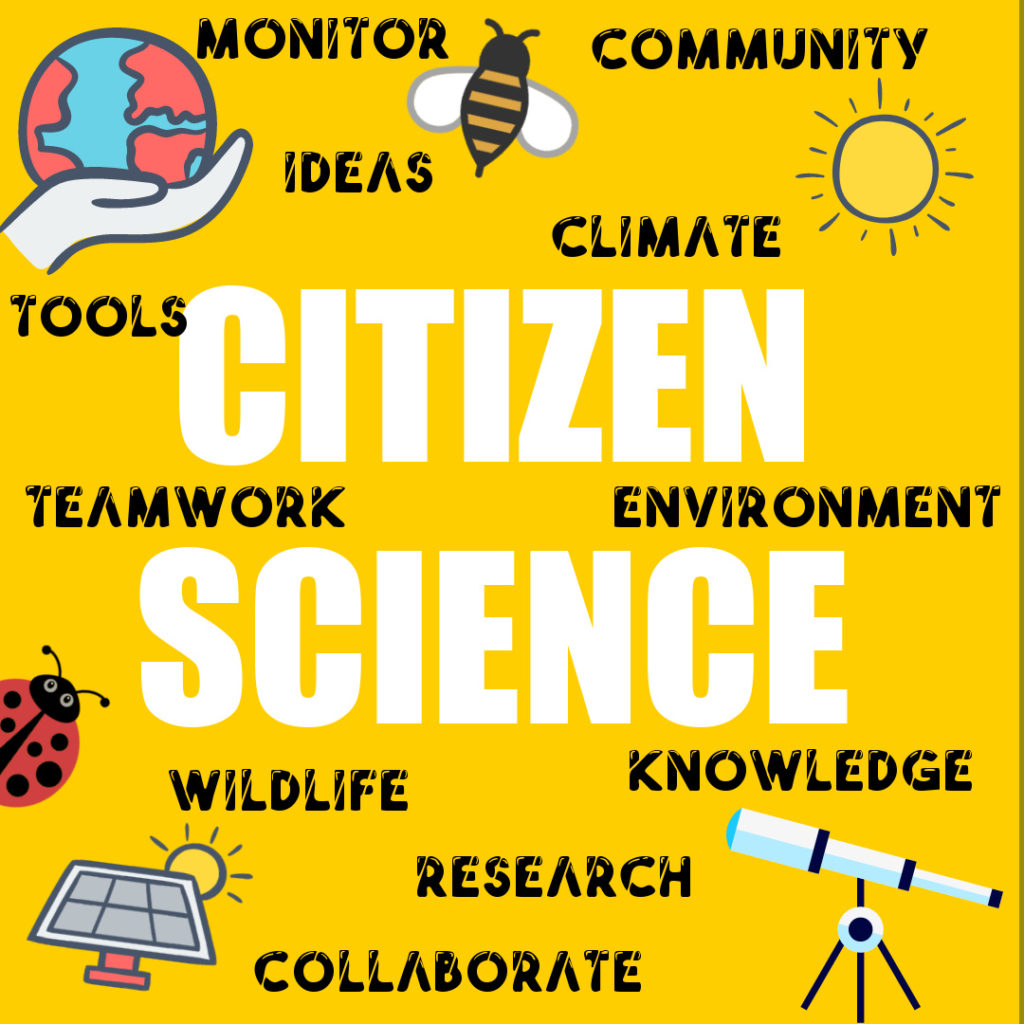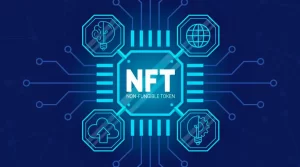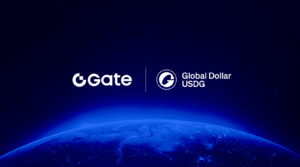NFTs and Citizen Science: Empowering Public Participation in Research

NFTs and Citizen Science
Introduction
Citizen science is a powerful approach that engages the public in scientific research, harnessing the collective power of individuals to contribute to scientific knowledge. Non-Fungible Tokens (NFTs), powered by blockchain technology, offer innovative opportunities to enhance citizen science initiatives. This article explores the intersection of NFTs and citizen science, highlighting how NFTs can empower public participation, incentivize contributions, and revolutionize the way the public engages with and contributes to scientific research.
Understanding Citizen Science and Its Benefits

Citizen science involves involving the public in various aspects of scientific research, from data collection to analysis and interpretation. Here are some benefits of citizen science:
- Broad Data Collection: Citizen science allows for large-scale data collection across diverse geographical locations and research areas, providing researchers with valuable datasets that would be difficult to obtain otherwise.
- Public Engagement and Education: Citizen science fosters public engagement in scientific research, promoting science literacy and increasing public understanding of scientific concepts and processes.
- Accelerated Research Progress: The involvement of a large number of citizen scientists accelerates the pace of research, enabling the collection of data on a scale that would be otherwise unattainable within limited timeframes.
The Role of NFTs in Citizen Science
NFTs can play a pivotal role in enhancing citizen science initiatives:
- Incentivizing Participation: NFTs provide a means to incentivize public participation in citizen science projects. By offering NFT-based rewards, such as limited-edition digital collectibles or access to exclusive content, researchers can motivate individuals to contribute their time, effort, and expertise to scientific endeavors.
- Transparent Data Traceability: NFTs stored on the blockchain can ensure transparent data traceability in citizen science projects. Each contribution or data point can be linked to a unique NFT, allowing researchers and the public to track the origin, validity, and impact of individual contributions.
- Decentralized Project Governance: NFTs can enable decentralized governance models for citizen science projects. By tokenizing project ownership or decision-making rights, researchers can distribute governance power among participants, fostering a collaborative and inclusive approach to project management.
Encouraging Public Participation with NFT Rewards
NFT-based rewards offer a powerful tool for encouraging public participation in citizen science:
- Exclusive Digital Collectibles: Researchers can create unique NFT-based digital collectibles that represent achievements or milestones in citizen science projects. These collectibles can serve as incentives for individuals to actively contribute and engage with the research.
- Access to Exclusive Content: NFTs can grant access to exclusive content, such as research updates, behind-the-scenes insights, or interactive experiences related to the citizen science project. This fosters a sense of exclusivity and provides additional motivation for public participation.
- Collaborative Tokenized Challenges: Researchers can tokenize challenges or tasks within citizen science projects, allowing individuals to participate and compete for NFT-based rewards. This gamified approach promotes engagement, friendly competition, and the collective pursuit of scientific goals.
Verifiable Contributions and Recognition with NFTs
NFTs enable verifiable contributions and recognition for citizen scientists:
- Immutable Contribution Records: NFTs stored on the blockchain create permanent and tamper-proof records of individual contributions to citizen science projects. This ensures transparency, accountability, and traceability of the public’s involvement.
- Digital Certificates of Participation: Citizen scientists can receive NFT-based digital certificates to validate their contributions. These certificates serve as a form of recognition and can be showcased as achievements or badges of honor.
- Researcher-Verified Contributions: NFTs can be utilized as tokens of verification by researchers, indicating that an individual’s contribution has been reviewed and validated. This instills trust and confidence in the public’s involvement in the scientific process.
Tokenized Citizen Science Projects
Tokenization of citizen science projects with NFTs unlocks various possibilities:
- Project Funding and Crowdfunding: Researchers can tokenize citizen science projects, allowing individuals to contribute funds and become stakeholders in the project’s success. NFTs represent ownership or investment opportunities, fostering a sense of ownership and responsibility among the public.
- Data Tokenization and Ownership: NFTs can represent ownership or rights to specific datasets within citizen science projects. This promotes transparent data sharing, facilitates collaborations, and ensures proper attribution for data contributors.
- Decentralized Collaboration Platforms: NFT-based platforms can connect researchers and citizen scientists globally, enabling decentralized collaboration and knowledge exchange. Tokenized platforms create opportunities for individuals to participate in a range of citizen science projects and contribute their expertise across various research domains.
Challenges and Considerations
Implementing NFTs in citizen science projects comes with challenges and considerations:
- Accessibility and Digital Divide: Ensuring equitable access to NFT-based citizen science projects requires addressing the digital divide and providing inclusive platforms that consider varying levels of technological infrastructure and expertise among the public.
- Ethical and Privacy Considerations: Researchers must address ethical considerations, such as informed consent, data privacy, and the responsible use of public-contributed data in NFT-based citizen science projects. Safeguards should be in place to protect participants’ privacy and ensure data security.
Future Implications and Possibilities
The integration of NFTs in citizen science has significant future implications:
- Global Collaboration and Knowledge Exchange: NFTs enable global collaboration and knowledge exchange, breaking down geographical barriers and promoting diverse perspectives and expertise in citizen science projects.
- Advancing Scientific Discovery: By empowering public participation and harnessing the collective intelligence of citizen scientists, NFTs have the potential to accelerate scientific discovery and unlock new insights in various research domains.
NFTs and Education in Citizen Science
- Educational Opportunities: NFTs can be used as educational tools in citizen science projects, providing interactive learning experiences and promoting scientific literacy among participants.
- Student Involvement: NFT-based citizen science projects can engage students at various educational levels, allowing them to contribute to research while gaining practical knowledge and skills.
- Curriculum Integration: NFTs can be integrated into educational curricula, offering hands-on experiences in citizen science and blockchain technology, fostering interdisciplinary learning.
NFTs and Long-Term Data Preservation in Citizen Science
- Permanent Data Records: NFTs can serve as tokens representing long-term data preservation in citizen science projects. By tokenizing datasets, researchers ensure the accessibility and availability of valuable data for future research and analysis.
- Decentralized Storage Solutions: NFTs stored on decentralized storage networks, coupled with blockchain technology, contribute to the long-term preservation of citizen science data, ensuring its integrity and accessibility over time.
- Data Citation and Attribution: NFTs provide a mechanism for data citation and proper attribution in citizen science. Researchers can reference the associated NFTs to acknowledge and credit contributors for their data contributions.
NFTs and Public-Private Partnerships in Citizen Science
- Collaboration Opportunities: NFTs can facilitate public-private partnerships in citizen science, fostering collaborations between research institutions, corporations, and the public. Tokenization of projects allows for shared ownership and joint initiatives to address complex scientific challenges.
- Corporate Sponsorship and Support: NFT-based citizen science projects can attract corporate sponsors who are interested in supporting scientific research and engaging with the public. NFTs can offer unique benefits and privileges to corporate sponsors as a form of recognition and incentive.
- Resource Sharing and Expertise Exchange: NFT-based platforms for citizen science provide a space for research institutions and corporations to share resources, knowledge, and expertise, maximizing the impact of collaborative efforts.
NFTs and Gamification of Citizen Science
- Gamified Engagement: NFTs can be used to gamify citizen science projects, turning participation into an enjoyable and rewarding experience. NFT-based achievements, badges, and leaderboards create a sense of competition and drive participants to contribute more actively.
- Collectible NFTs as Rewards: Researchers can offer unique collectible NFTs as rewards for completing specific tasks or reaching milestones in citizen science projects. Collectible NFTs can be tradable and valuable, adding an element of excitement and motivation to participants.
- Virtual Environments and Augmented Reality: NFT-based citizen science projects can leverage virtual environments and augmented reality to enhance engagement and provide interactive experiences, allowing participants to explore scientific concepts in immersive ways.
NFTs and Ethical Considerations in Citizen Science
Ethical considerations play a vital role in NFT-based citizen science projects. Researchers must address issues such as informed consent, data privacy, and the responsible use of public-contributed data. It is crucial to establish clear guidelines and protocols to ensure that participants fully understand the purpose of the project, the type of data being collected, and how their contributions will be utilized. Respecting privacy rights and safeguarding personal information is paramount. Researchers should implement robust data protection measures, adhere to relevant privacy regulations, and anonymize or aggregate data whenever possible to protect the privacy and confidentiality of participants. Open and transparent communication with the public is essential to address ethical concerns and maintain trust in NFT-based citizen science initiatives.
NFTs and Diversity in Citizen Science Participation
NFTs have the potential to promote diversity and inclusion in citizen science participation. Researchers can actively work towards ensuring that NFT-based projects are accessible to a wide range of individuals, regardless of their backgrounds, geographical location, or socioeconomic status. It is essential to consider barriers to entry, such as technological infrastructure and digital literacy, and provide support and resources to bridge these gaps. NFT-based citizen science platforms can incorporate multilingual interfaces, offer user-friendly tools and tutorials, and provide offline participation options to accommodate diverse communities. Fostering a culture of inclusivity and actively encouraging participation from underrepresented groups can lead to more comprehensive and representative scientific research outcomes.
NFTs and Responsible Data Governance in Citizen Science
Responsible data governance is critical in NFT-based citizen science projects. Researchers must establish clear data management and sharing policies that protect the rights and interests of participants while ensuring that data remains accessible for scientific purposes. This involves defining data ownership, consent for data usage, and mechanisms for handling sensitive information. NFTs can serve as tokens that provide researchers with verifiable and traceable access to data, while respecting the privacy and confidentiality of participants. It is crucial to establish robust data governance frameworks that align with ethical principles, legal requirements, and the expectations of participants, ensuring responsible and transparent data practices in NFT-based citizen science projects.
NFTs and Global Collaboration in Citizen Science
NFTs enable global collaboration in citizen science, transcending geographical boundaries and connecting researchers and participants worldwide. Researchers can tokenize citizen science projects and leverage NFT-based platforms to create a global network of contributors. This global collaboration fosters diverse perspectives, knowledge exchange, and cross-cultural understanding, enriching the scientific research process. NFT-based citizen science platforms can facilitate multilingual communication, enabling participants from different regions to engage in discussions, share insights, and collaborate on research initiatives. By leveraging the power of NFTs, citizen science can become a global movement, amplifying the collective intelligence and creativity of individuals from various backgrounds to tackle complex scientific challenges.
Conclusion
NFTs offer transformative opportunities in citizen science, empowering public participation, incentivizing contributions, and revolutionizing the way the public engages with scientific research. By leveraging NFTs, researchers can enhance transparency, accountability, and recognition within citizen science projects, fostering a collaborative and inclusive scientific community. The integration of NFTs in citizen science paves the way for impactful research outcomes and a deeper connection between the public and the scientific process.








